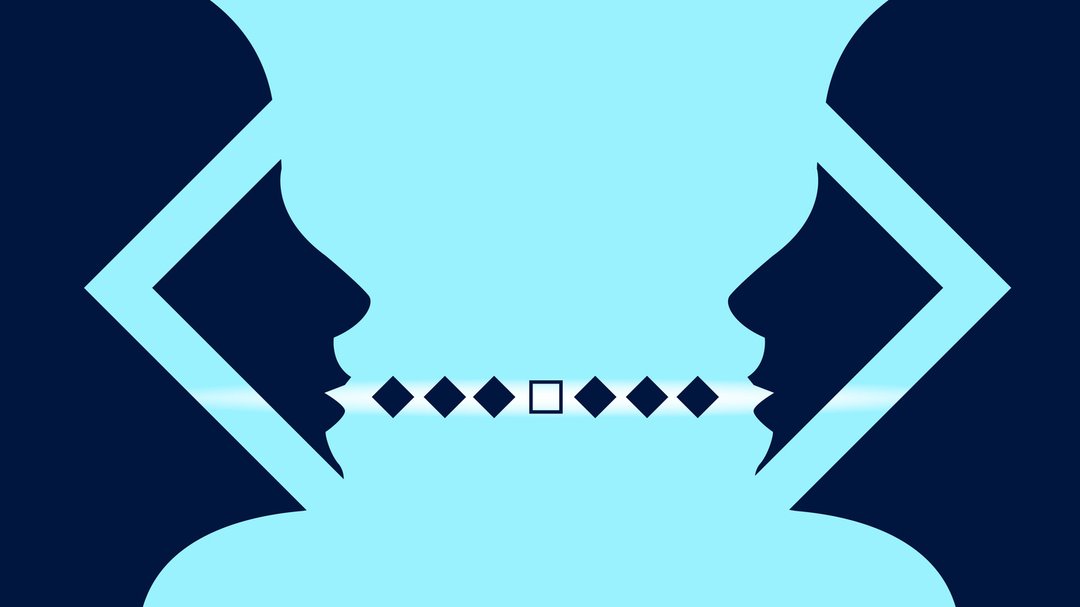
Lucy Swedberg
July 28, 2023
About a year ago, a friend suggested that I enroll in an adult tap-dance class held at our town’s community center. The suggestion wasn’t as random as it might seem. For nearly two decades in my youth, I had loved tapping in classes and onstage. And when I laced up those black leather shoes after a nearly 20-year hiatus, I felt instantly at home.
What surprised me most about my tap renaissance wasn’t how quickly the steps came back to me. It was how the language of tap, the utterance of words I hadn’t voiced in decades, energized me: triple-time step, riff walk, cramp roll, back essence. The teacher would say the words, and my feet would tap into action.

iStock-1358461124
The Power of Language, written by Viorica Marian, a psycholinguistics researcher, helped me understand what was going on. At a young age I had become fluent in tap. Tap is a code of communication that changed my brain, opening me up to new knowledge and new experiences. I hadn’t used that language in a long time, and now I was reactivating it.
Marian explores the power of multilingualism like mine and the more typical type—being fluent in, say, English, Korean, and JavaScript. She explains that although the majority of people in the world speak more than one language, most research to date has been on monolingual populations, so we’re only beginning to understand the power of the multilingual mind.
When you know multiple languages, you understand that meaning is assigned, not inherent. You extract and interpret information differently, and you’re more attuned to how words make you feel. All of that yields benefits, she notes. People who are multilingual develop critical-thinking and other higher-order skills more quickly as children. They perform better on executive-functioning tasks like following multistep directions and staying focused despite distractions. They draw more novel connections and are more open and accepting than monolinguals. “If you can appreciate firsthand the utility and beauty of another language and worldview, it is not hard to imagine you are less prone to bigotry, to demonizing things or people who are different from you,” Marian explains.
The lauding of linguistic difference continues in A Myriad of Tongues. Author and language researcher Caleb Everett notes that more than 7,000 languages exist today, although most people struggle to name more than a few dozen. Historically, academics have looked for commonalities among languages and focused mainly on those used by Western, educated, industrialized, rich, and democratic (WEIRD) societies. But, Everett says, the tide is shifting. Recent research has focused on how languages diverge—and what those differences can tell us about how we think and behave.
His book synthesizes his own and others’ research that brings in data from non-WEIRD languages and broadens our understanding of how words affect cognition, including how we process the concepts of time, space, color, and kinship. In the indigenous Karitiâna language spoken in northwestern Brazil, for example, the terms used to refer to a relative depend on the gender of the person speaking, not just the gender of the person referred to. There’s a sense of symmetry and reciprocity in Karitiâna that doesn’t exist in English.
Once leaders understand the power of language, they can harness both differences and similarities to wield influence. As Jonah Berger, a Wharton professor and natural-language-processing expert, explains in Magic Words, there are specific words that, when used in the right way at the right time, are more impactful than others—at changing minds, engaging audiences, and driving action.
For example, in the workplace, a shared organizational language (such as start-up founders’ use of the word “pivoting,” retailers’ use of “omnichannel,” or entire teams’ use of more personal pronouns like “we” or “I” instead of the more distanced “they”) “can facilitate conversation, make people feel connected, and increase their perception that they are part of the same tribe,” Berger writes. This can increase feelings of trust and affiliation—and even the likelihood of promotion.
But when we seek creativity or memorability, a common vernacular isn’t always a good thing. Tired marketing copy or predictable slogans, for example, are easy to forget. When unexpected words are assembled in a distinctive way, they stick. That’s why the musical Hamilton was such a hit, Berger notes; its style diverged from what theatergoers were used to.
Berger’s book reinforces my belief as an editor—and should remind us all—that there’s value in thinking deeply about each word we use: how it expresses a particular concept or nuance and how people from different geographies, cultures, and backgrounds might experience it.
And yet, amid so much admiration for the power of words, the screenwriter and journalist Dan Lyons reminds us in STFU that sometimes our best move is to stop using them. When you sit back and let people talk, he explains, you get more and better information. Listening is a leadership superpower.
Lyons’s book brims with specific suggestions for how to shut off—on social media, at work, at home, in love. We can delete apps from our phone, keep meetings small and short, stop nagging about chores, and pause and breathe before saying something that we’ll regret. “All of us, not just overtalkers, stand to gain by speaking less, listening more, and communicating with intention,” Lyons writes. We can appreciate words and language but realize that our sparing and intentional use of them is a pathway to happiness.
Lyons helped me pinpoint another thing I love about my tap class—it’s 60 minutes a week when I can let my shoes do the talking.
c.2025 Harvard Business Review. Distributed by The New York Times Licensing Group.
This HBR article was legally licensed through AdvisorStream.


